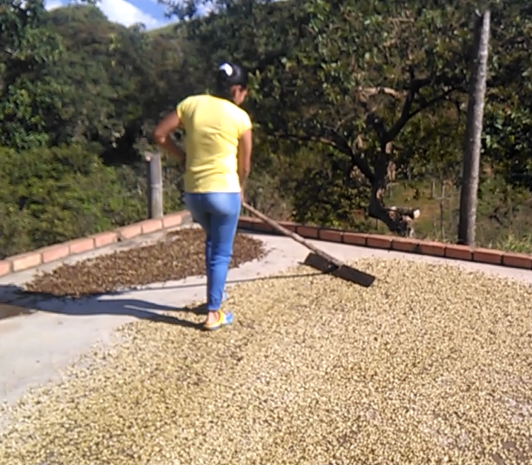This project aims to implement a suite of three technologies: gasification-fuelled cookstoves, tubular plug-flow biodigesters and gasification-fuelled coffee dryers. Using a participative process, six of these demonstration suites will be implemented in five departments of Colombia: Santander (2), Meta, Antioquia, Cauca and Caldas.
 Colombia's coffee-growing region is the world's third most productive, providing a livelihood for over 560,000 families. By taking advantage of the organic waste generated by coffee cultivation and common practices of diversified production, biomass-fuelled renewable energy (RE) technologies offer rural families the chance to improve their quality of life and economic productivity while implementing sustainable and integrated practices.
This project aims to implement a suite of three technologies: gasification-fuelled cookstoves, tubular plug-flow biodigesters and gasification-fuelled coffee dryers. Using a participative process, six of these demonstration suites will be implemented in five departments of Colombia: Santander (2), Meta, Antioquia, Cauca and Caldas.
The specific objectives of the project are:
Colombia's coffee-growing region is the world's third most productive, providing a livelihood for over 560,000 families. By taking advantage of the organic waste generated by coffee cultivation and common practices of diversified production, biomass-fuelled renewable energy (RE) technologies offer rural families the chance to improve their quality of life and economic productivity while implementing sustainable and integrated practices.
This project aims to implement a suite of three technologies: gasification-fuelled cookstoves, tubular plug-flow biodigesters and gasification-fuelled coffee dryers. Using a participative process, six of these demonstration suites will be implemented in five departments of Colombia: Santander (2), Meta, Antioquia, Cauca and Caldas.
The specific objectives of the project are:
- To conduct a detailed baseline study on partner organisations, monitoring parameters, performance assessment and potential users
- To develop local management models for the proposed technologies
- To construct and implement the cookstoves, biodigestion systems and coffee dryers, and to undertake hands-on training for operators
- To offer experience exchanges between the different project sites, to monitor and evaluate project experiences and to analyse socio-economic and environmental impacts
Projects with same technology
Exchange: "Biogas for Energy" – E-Learning Platform for Latin America and the Caribbean
This SEPS exchange aims to expand the already available CIBiogás e-learning platform in order to reach a broad audience of students, technicians, officials and other practitioners from Latin America and the Caribbean.
Biogas from Slaughterhouse Waste Water Treatment for Heating Purposes
The focus of the project is to demonstrate the potential for producing biogas from slaughterhouse wastewater treatment in Ecuador. Previous research in Bolivia has shown the viability of treating wastewater using tubular digesters with low cost anaerobic filters.
Projects in same country
An Integrated Biogas-Water System for Sustainable Water Heating and Food Production in Arid Environments
This project aims to address the challenge of water scarcity in mountainous regions of Colombia by introducing an integrated biogas-water system at a hotel in the region.
Exchange: Community Trainers for Renewable Energy Technology Use in Sustainable Food Production and Water Management
The focus of this exchange activity is a social alliance and collective learning process between NGOs and rural communities from three regions of Colombia (Santander, Córdoba and Antioquia). It is based on the accumulated results achieved previously in a WISIONS supported project and ongoing community work in the field of renewable energy and sustainable livelihood strategies.